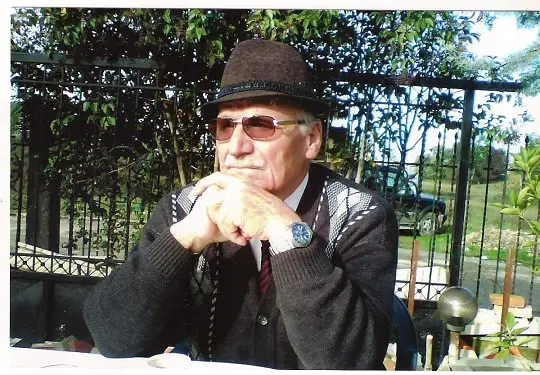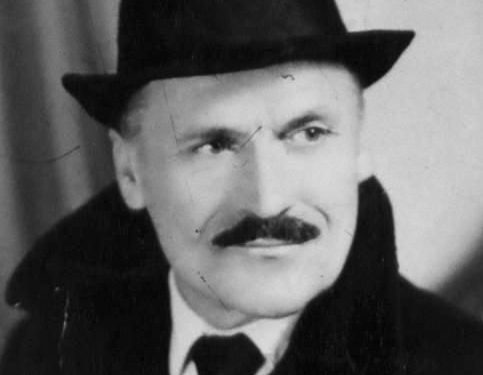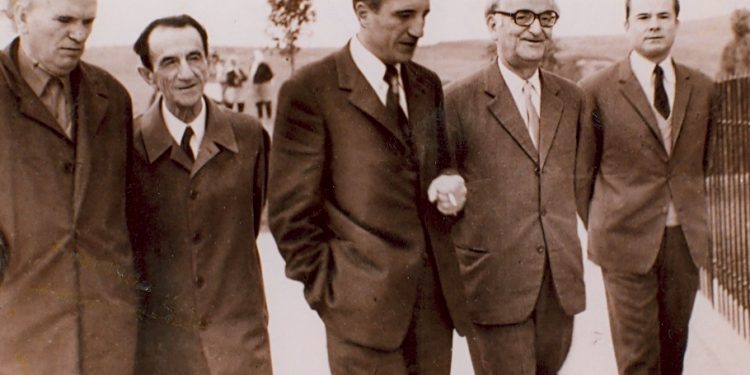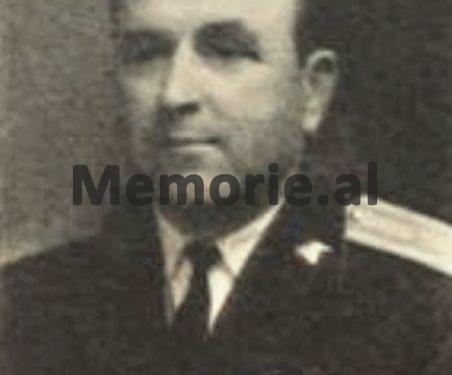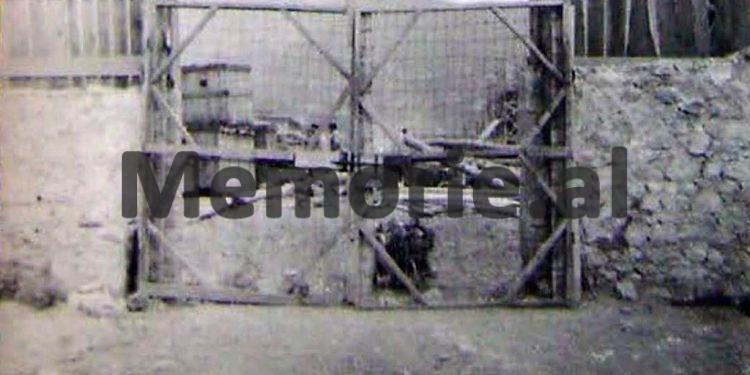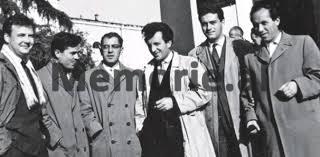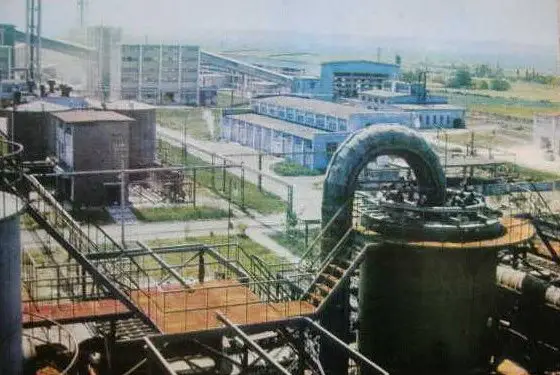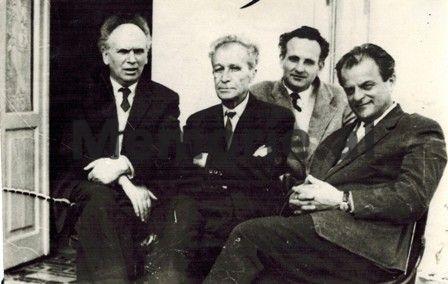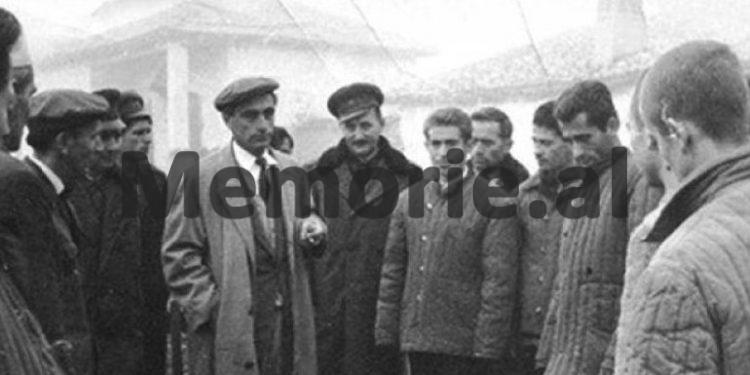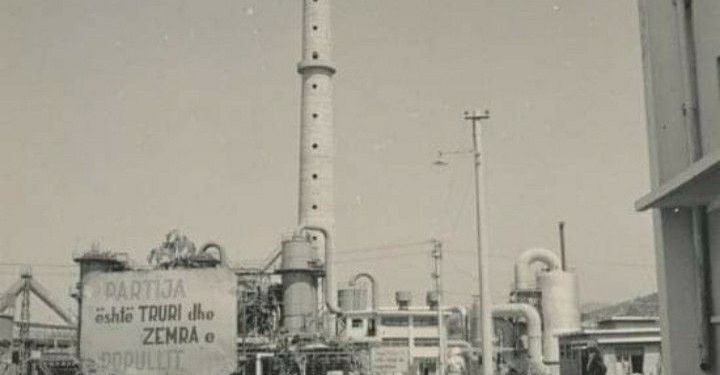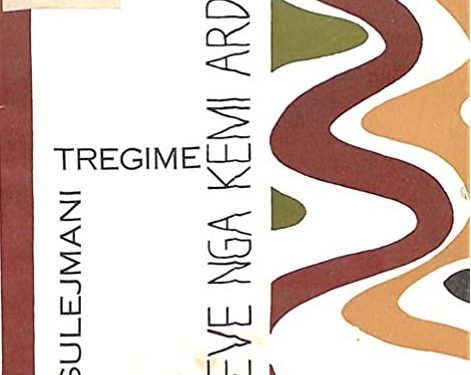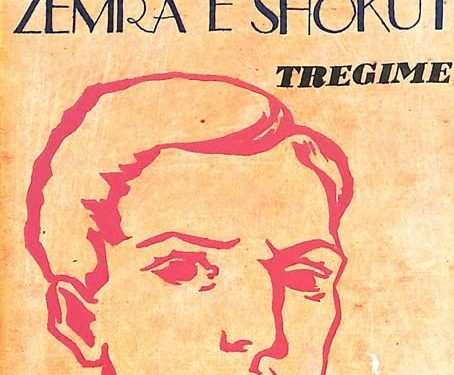Dashnor Kaloçi
Memorie.al publishes the unknown story of Siri Sulejmani, originally from the village of Tragjas in Vlora, who since the 1960s, when he worked as an excavator, tractor, bulldozer, etc., in construction sites in some districts of the country, thanks to one His literary talent was accepted as a member of the League of Writers and Artists of Albania and as a member of the College of the magazine “Hosteni”, managing to write several books, such as: “The first rumors”, “Heart of a friend”, “In the course of life”, “The famous man on the track”, “An event in Kursal cafe”, etc. Sulejman’s rare testimony before the 1990s was known as “the writer who came from the working class”, how he wanted to physically exterminate the former commander of the Laç prison camp, Colonel Hazbi Lamçe, in the early 1960s. -when he was working as an excavator in the construction of the Superphosphate Plant that was being built at that time by political prisoners, the man who was charged with its elimination and why was that not achieved ?!
“Back in 1967, when I was working as an excavator in the construction of the Superphosphate Plant on the outskirts of the small town of Laç, the director of the prison camp, Colonel Hazbi Lamçe, with whom I had a conflict, asked me to physically eliminate him and to kill me, he made a concrete plan which was assigned to him by an electrician from the district of Mat ”. This is how the well-known writer Siri Sulejmani, the author of many books before the 1990s, recalled a distant event that took place in the 1960s when he was placed in a “red circle” by the State Security. to be physically eliminated. Regarding this event and others, Siriu testifies to us in an interview that we took from him a few years ago and that we are publishing in this article.
Mr. Sulejmani, how do you remember the event about which you say that the State Security wanted to physically destroy you?
In the mid-1980s, the Hosteni editorial office sent me a service in the district of Mati, which involved clarifying a letter sent to the magazine where I was a college member. After I finished work, I sat down to have a coffee at the Hotel-Turzimi bar in Burrell. At the table, an unknown person approached me in the ’50s and asked permission to sit with me for coffee. I didn’t know him at first, but when he told me his name, I remembered that I had worked with him at the Superphosphate Plant in Lac.
Who is he?
His name was Zenel Rami and he worked as an electrical engineer at the Burrel Municipal Enterprise, while in those years when we were together in Laç, he worked as an electrician. After we greeted each other, Zeneli said to me: Syria, I came to your table to unload from your shoulders a heavy burden that has been tormenting me for 20 years.
What was he talking about?
He started telling me this story, which I am also telling you as he told me: Back in 1965, as Zeneli was walking under the window of the prison commander’s office, Colonel Hazbi Lamçe, he called him. making him sign up to go upstairs to the office. Zeneli immediately went upstairs and Hazbi, who was waiting for him in the corridor, put him inside the office and locked the door. On the table he had left his pistol, which shone. After asking Zeneli about the family, Hazbiu told her: “You are a good family in Burrel, although you have a runaway man, the Party has thought to keep you close, but it will prove loyalty but.” As Zeneli shrugged, he tried to respond, but the camp commander interrupted him, telling him: “Listen carefully to my words: A wicked man, an enemy of the party and society, has been in the factory for two months. Is it Siri Sulejmani, who works with the “Pirun” crane, do you know him or not? As Zeneli nodded, Hazbi continued: “He is your enemy. Who knows where he learned that you have a runaway man and he prepared the intrigue. The frightened Zenel replied that he had a distant cousin, but Hazbi, who did not want to know what he was saying, continued: “Do not be afraid that I have that job in my hand. The Party knows what you have the best fugitive, you are listening to me now. That crane must be killed and that is up to you, the Party. ”
How did Zeneli respond to Hazbi Lamçe’s proposal?
Extremely frightened, Zeneli said, “How can I kill a man ?! There are commands here, there are the police, what about me? After that, Hazbi continued: “Don’t waste time with broccoli, but what am I here for, do you know who runs here or not? Listen to me carefully: When evening falls, while you are working on collecting the boxes of machinists, where you can lay a buffalo and it is not understood, he cut a lever on his head and the rest I fixed. It rained and the earth fell, the crane caught it, the machinery box killed him, or he was hit by a prisoner. After all the meat for the ball we have this prisoner here. Be a good teacher like you are, because you will be close to me. He raised it now and for ten or twelve days I want to do this work. After that, Hazbi grabbed Zenel by the arm and, coming out of the door, told him not to talk up and down and made the scissors mark with his fingers.
What did Zeneli do after he left Hazbi Lamçe’s office?
As Zeneli told me, he left as if stunned and did not know where to go. From that moment on, he was no longer calm, nor did he eat, nor did he sleep, nor did he work. In this state of affairs, he had several times tried to kill himself. The days passed and he began to faint from his health as it seemed to him that at every step he took, the camp commander followed him from behind.
Do I talk to Zeneli about that?
In good faith, Zeneli had asked a Dibra man about me, and he had said in good faith, “Sirius is a good man, but he is sorry for the camp commander, and wait a day for him to eat him.”
How did Zeneli respond?
Zeneli told him: “How can this happen, is there a state here or not?” Dibrani continued by telling him that Hazbi Lamçja had disappeared many convicts and had covered them with minutes. After those words, Zeneli was more frightened, thinking that Hazbi could destroy him as well.
During those days, did Hazbi Lamçja encourage Zeneli with the task he had assigned him?
On one of those days, Hazbi got out of the car and grabbed him by the shoulder and said, “What are you doing, why are you like a fool? Killing him is like killing a chicken.”
But when the 12-day deadline was met, what did Hazbi say to him?
After 12 days, Zeneli went to Hazbi’s office on his own and told him that he could not do the job he had been assigned. At that moment, at the height of his nervousness, Hazbiu said to him: Get out. As Zeneli was walking out the door, Hazbi told him to be careful that if he opened his mouth he would go to the many.
What happened next, did Hazbiu charge your elimination to the other man?
I don’t believe it, because after a few days I was fired and the whole camp remembered that the Director of the Camp had fired me, while I knew that that thing had come to me from Hazbi Lamçja? Colonel Hazbi Lamçe was transferred to another position. After a long time, another worker, Vasil Xholi, told me that Hazbi had pressured him to testify against me, saying that I had insulted the Party.
Why did Hazbi Lamçja physically want to eliminate you and were you aware of his plan?
I had a conflict with Hazbi, but it never occurred to me that he had introduced people to kill me. I learned this for the first time from Zenel Rami, who told me that story a few years later, in the presence of my friend, the famous writer, and humorist, Gaqo Veshi, or as he was otherwise known by the literary pseudonym, Hyskë Borbojka.
What about Hazbi Lamçe, did you happen to “encounter” after you left the Laçi construction site?
Fortunately, the roads did not meet with us anymore, because he had a bad end, as the very regime that he served for years as an officer of the Ministry of Internal Affairs with various duties as commander of camps and prisons, arrested him and imprisoned him in the late 1970s.
Siri Sulejmani: How did Sterjo Spase protect me for the story in the magazine “Nëntori”
Well-known writer Siri Sulejmani was born in 1937 in the village of Tragjas in Vlora, where his family originated from. After graduating from vocational high school, he left his village, working as a construction worker in every corner of Albania, practicing several professions such as excavator, bulldozer, zetorist, tractor driver, combine harvester, stallman, welder, ironworker, mechanical, etc. (Siriu continued his profession as an excavator even after the 1990s, working with his excavator, somewhere along the national road in Bushat, Shkodra, with drainage canals). Being very fond of books, at a young age he began to write as a self-taught man, and only in 1968 he managed to publish the first story in the magazine “November”. To publish that story, Siriu was helped by the well-known writer Steroj Spase, who also defended him at a meeting of the editorial board from some “ideological misconceptions” that the young writer had made. After that story, which was well received in the literary circles of that time, Sirius began to publish other stories, which then gave way to books such as “The First Excavations”, “Friend’s Heart”, “In the Flow of Life”. , “The famous man on the track”, “An incident in Kursaal cafe”, etc. In 1972, Siriu was accepted as a member of the League of Writers and Artists of Albania and for 20 years was a collegial member of the magazine “Hosteni”. At the time he was affirmed and made a name for himself as a writer coming from the working class, the vicissitudes began due to his biography, as he was the grandson of Skënder Muço and Mehmet Alemi, two well-known exponents of Balli Kombëtar in the Vlora area. For these reasons, Sirius had also changed his genius, as his real name and surname was Seri Ligu. Sirius is the author of nine books and over 200 articles in the press of the time, but although at an advanced age, he continues to write again after the 1990s, until he passed away on July 3, 2014. the./Memorie.al




